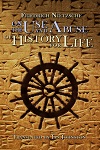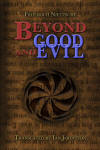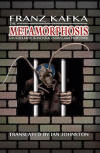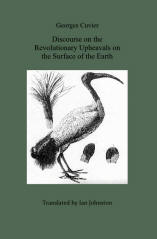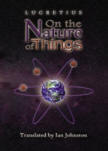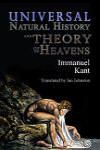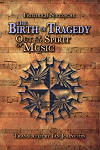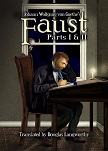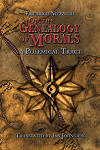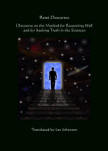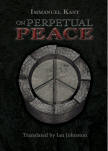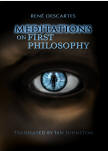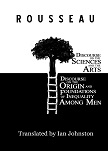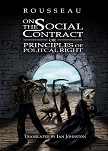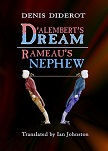Questions? Call us toll free:
1-800-856-3060
At Richer Resources, we are dedicated to the creation of high quality books, art and other media intended to enrich the lives of individuals of all ages.
As an independent publisher, we are bound by a sense of integrity and quality to produce products which enhance the lives and vision of individuals everywhere.
Sign up to receive notice of free eBooks, new releases and special subscriber-only offers.
(You can unsubscribe at any time)
Universal Natural History and Theory of the Heavens by Immanuel Kant Translated by Ian Johnston
Using Isaac Newton’s mathematical principles and laws of motion and taking up an idea first suggested by Emanuel Swedenborg, Immanuel Kant, the greatest philosopher of the eighteenth century, in 1755 produced a detailed account of what has come to be known as the Nebular hypothesis, still considered the most plausible explanation for...
On the
Use and Abuse of History for Life
Translated by
Ian Johnston
“We wish to serve history only insofar as it serves living. But there is a degree of doing history and valuing it through which life atrophies and degenerates. To bring this phenomenon to light as a remarkable symptom of our time is now every bit as necessary as it may be painful.” With these words Friedrich Nietzsche, the revolutionary German philosopher, launches a frontal assault on the modern historical scholarship of his age...
read more and see news, reviews and interviews
Beyond Good and Evil by Friedrich Nietzsche
Translated by Ian Johnston
Largely unknown in Nietzsche’s day, Beyond Good and Evil has in the twentieth century played a central role in the development of a number of modern philosophies; its influence today extends beyond philosophy into any number of other areas. Ian Johnston’s new translation captures brilliantly Nietzsche’s extraordinary writing style, which has long been celebrated as a uniquely vital contribution to philosophical writing.
Metamorphosis, A Hunger Artist, In the Penal Colony and Other Stories Translated by Ian Johnston
Franz Kafka (1883-1924), whose writings attracted relatively little attention in his own lifetime, has long been recognized as one of the most famous, distinctive, and influential voices in modern world literature. His stories, which are famously enigmatic...
Discourse on the Revolutionary Upheavals on the Surface of the Earth
Translated by
Ian Johnston
Georges Cuvier (1769-1832) was a brilliant, influential, and powerful figure in natural science in the early nineteenth century, particularly famous for his work with the fossils of quadrupeds and his ability to reconstruct entire skeletal structures on the basis of a few fragments. Like many of his colleagues, Cuvier opposed evolution and yet, as a scientist, he could not ignore the evidence of past extinctions...
read more and see news, reviews and interviews
Birth of Tragedy Out of the Spirit of Music
Translated by Ian Johnston
Friedrich Nietzsche’s The Birth of Tragedy Out of the Spirit of Music, published in 1872, is not only the first major work of the most provocative voice in modern philosophy but also the most important study of Greek tragedy since Aristotle’s Poetics.
Faust by
Johann Wolfgang von Goethe
Translated by
Douglas Langworthy
What would you give to know everything that can be known? For the German scholar Heinrich Faust, the answer is, everything. In Goethe’s dramatic epic poem Faust, perhaps the best-known version of this age-old legend, Faust pledges his soul to Mephistopheles if—and only if—he is satisfied with the knowledge he attains...
On the
Genealogy of Morals by Friedrich
Nietzsche
Translated by
Ian Johnston
The Genealogy of Morals,
first published in 1887, is widely considered the most important work
written by the revolutionary and extraordinarily influential German
philosopher Friedrich Nietzsche (1844-1900). The work consists of three
essays, each one examining some aspects of the historical development of
modern moral concepts. Nietzsche’s purpose here, as in his other works, is
to expose the falsity and deleterious effects of traditional morality,
especially the morality of Christianity.
read more and see news, reviews and interviews
Discourse on the Method for Reasoning Well and for Seeking Truth in the
Sciences by René Descartes
Translated by Ian Johnston
Discourse on Method,
published in 1637, is one of the most important works in the history of
modern science. In this slim book, Descartes ostensibly sets out to
inform the reader, in a modest, informal, and very readable style, of
his own educational development and pursuit of knowledge. However, by
the end he has set down a revolutionary new program for investigating
the truth.....
On Perpetual Peace by Immanuel Kant
Translated by Ian Johnston
Immanuel Kant's On Perpetual Peace, published in
1795, is a landmark document exploring the ancient question of how human
societies can create conditions which foster peace among nations. Kant
concedes that such a state of peace is not a natural condition, but he
offers the often tentative hope that if certain international principles
are adopted a progress towards such a peace is certainly possible,
at least among a federation of free states...
Meditations on First Philosophy by René Descartes
Translated by Ian Johnston
Rene Descartes' Meditations on First Philosophy, first published in 1641, is one of the most famous and influential thought experiments in the history of ideas. In six meditations the author sets out a long and subtle argument describing his quest for certainty. Casting aside all knowledge that he can in any way doubt, he explores what he can know with absolute certainty. This exercise brings him to the famous conclusion: I am thinking; therefore, I am...
Discourse on the Sciences and
the Arts
Translated by Ian Johnston
Jean Jacques Rousseau’s provocative
Discourse on the Sciences and the Arts (1750)
launched a vigorous assault on the most cherished beliefs of his age in
a passionate indictment of civilized “progress,” which, in Rousseau’s
eyes, has led to a debilitating corruption of human nature and morality.
Four years later, Rousseau produced another such assault in the
Discourse on the Origins and
Foundations of Inequality Among Men....
On the Social Contract or
Principles of Political Right
by Jean Jacques Rousseau
Translated by Ian Johnston
Long hailed as one of the most original, controversial, and influential works of modern political theory, Jean-Jacques Rousseau’s On the Social Contract or Principles of Political Right (1762) sets out to address an apparently insoluble difficulty: how can we organize a political community so as to guarantee its members...
D’Alembert’s Dream and Rameau’s Nephew
by Denis Diderot
Translated by Ian Johnston
Denis Diderot (1713-1784), one of the major writers in eighteenth-century French culture, was a leading figure among those criticizing established traditional order and promoting radical reforms in French culture. Of his numerous works in a wide variety of styles, his best known today is Rameau’s Nephew a fictional dialogue between a mature narrator, often identified with Diderot himself...
